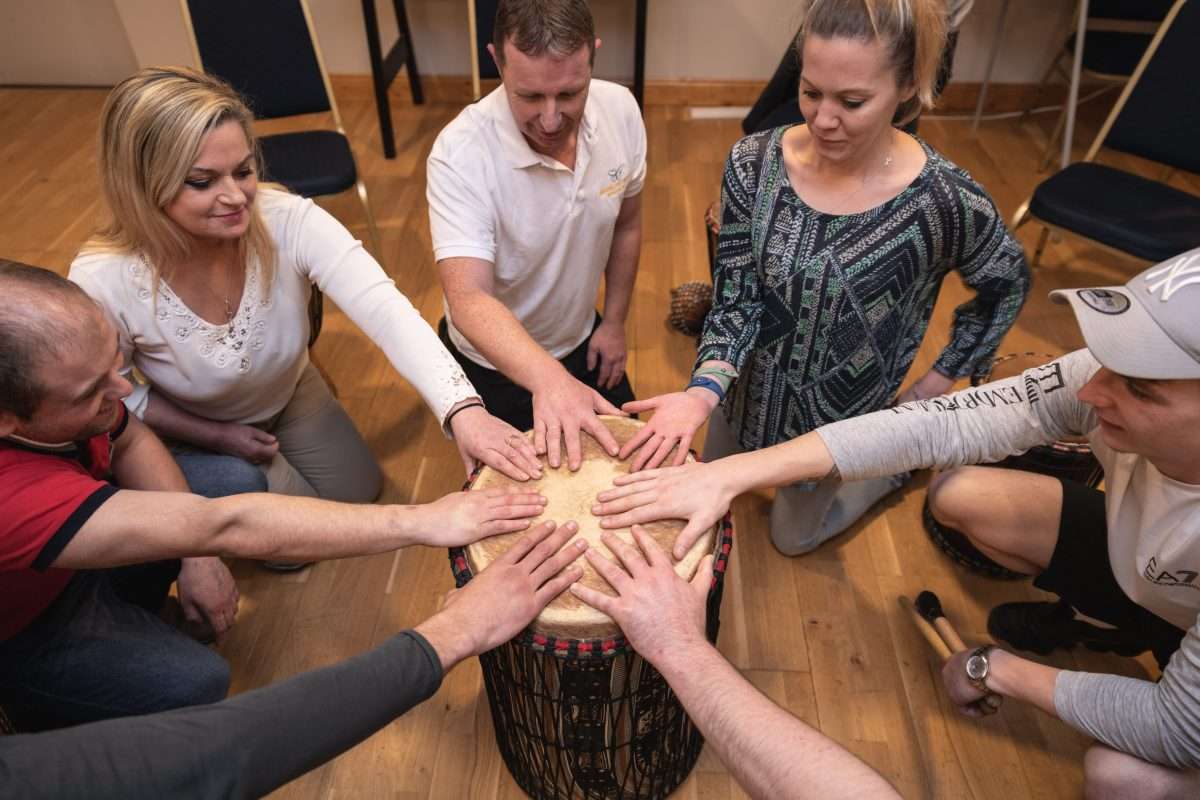
Smarmore Castle Drug & Alcohol Rehab
It Helps to Understand the Process
Many people enter rehab not knowing what to expect, and quite a few leave without really knowing what has happened. If you’re in a clinic for a surgical procedure, you may not know exactly what the doctors are doing, you simply put your trust in them to mend your body. But addiction is, as we know, a complicated thing – a mental, spiritual and physical disease. The more we understand the recovery process, the better our recovery will be. At Smarmore Castle Clinic we discuss treatment with all newcomers and work together to produce a personalized treatment plan within the first few days.
The Need for Change
For rehab to be successful, change has to happen (not just talked about or hoped for) and it must be profound. Behavioral change is not enough – we must explore the reasons why we behave in certain ways – our thoughts, feelings, and beliefs. And we must learn to make choices based on our desire to change and the knowledge of what is good for us and our recovery (no more pleasure-seeking instant gratification, in other words).
Rehab is for most people an unforgettable life-changing experience where new ideas are learned and new connections are made, but many first-timers are anxious and fearful of the unknown.
The Goals of Recovery
The long-term goal of recovery might be said to be abstinence, contentment, and a sense of re-connection with society, but these may take years and perhaps never be reached in entirety. To the very newly sober, these may seem daunting, but they will soon learn that it is a simple programme that will work for them if they can bring to the table the three essentials for successful therapy – honesty, openness, and willingness to change.
Addiction Makes Us Negative
Most people arrive in rehab with a lot of negativities which may include the following:
- Not trusting and emotional instability
- Fear and anxiety
- Loneliness and despair
- Shame and guilt
- Denial
- Anger and resentment
- False pride
- Low self-esteem
- Co-morbid conditions such as depression, PTSD,
- Confusion
- Feeling victims of events they cannot influence.
An important part of rehab is to displace these negative feelings with positives, such as:
- Trust and peace of mind
- Feeling of belonging
- Good self-esteem
- Acceptance and gratitude
- Clear thinking
- Realism
- Hope
- Courage
- Empowerment

Download our Brochure
But simply replacing negatives with positives is not enough. In other words, just feeling better is missing the point. We must be actually doing things better which means, crucially, taking responsibility for our lives. Wanting our lives to change and expecting or hoping that someone else will make that happen is not good enough. A doctor might fix a broken leg while we do nothing but the best therapists and psychologists in the world will not fix our addiction – only we can do so. It may seem obvious to some people but deciding to take responsibility for one’s life and one’s recovery is for many, the most pivotal moment in treatment.
Goals of Treatment
- Goals to be identified as results of the treatment itself are more specific and detailed and may need adjusting as the treatment progresses. The uniqueness of each person, their background, culture, needs, and the nature of their addiction all render it impossible to produce a standard template, but for most, the following will be major items to be addressed during a stay in rehab. Each person’s treatment plan will reflect this. The list below is in roughly chronological order reflecting a like sequence of events in a typical rehab setting:
- Physical wellness, clear thinking, and a healthy moral value system
- Denial replaced with acceptance, trust, and hope
- Integration into the group – belonging, sharing, and helping others
- Taking responsibility to make change happen through positive affirmative action and right choices – Exploring spirituality and filling the ‘hole in the soul’. ‘Spiritus contra spiritum’ (C. Jung).
- Ego management from selfishness to self-respect
- Resentment issues and other self-defeating attitudes identified and addressed
- Trauma and inner child issues addressed
- Family matters including family meetings to repair broken relationships
- Relapse prevention and continuing care – forward planning and coping strategies
- Re-connection via involvement in local 12-step groups

Working Together For Your Recovery
SAMHSA 10 Principles of Recovery
The US Substance Misuse and Mental Health Services Administration (SAMHSA) proposes ten principles of recovery that a newcomer would expect to encounter, work through and appreciate while in rehab. These principles are broadly in line with the expectations outlined in this article:
- Hope – I can do this – a motivation and a catalyst
- Person driven – taking responsibility for change is empowering
- Many pathways – recovery is a journey and each person’s path is different
- Holistic – we live in a joined-up universe and we must address not only our own personality but our place in society – a strength as well as a commitment
- Peer support – we are not alone and the example, experience, and empathy of others – our peers, family, mentors, and colleagues – are gifts we should grasp wholeheartedly
- Relational – if addiction is partly an attachment disorder, then recovery is in part, a process of re-attachment to foster a sense of belonging
- Culture – the diversity of our culture and background influences our responses and thinking and we should remain aware of this
- Addresses trauma – few of us have been lucky enough to have never experienced the trauma of some kind. Childhood trauma is especially damaging but any traumatic event needs to be addressed
- Strengths/responsibility – our strengths and responsibilities differ but becoming aware of these and using them positively means empowerment
- Respect – self-respect from the fact that we are achieving a difficult goal not only motivates us but results in the respect of others.
What A Six Week Stay Looks Like
A typical first-timer entering rehab for a projected six-week stay might expect the process to be as follows:
Week I: Introduction
Trust, and share – stabilizing, detox, meet therapist and peer group. Learn some facts about addiction and 12-step recovery. Introduce yourself to a peer group and discuss a treatment plan with a therapist. Learn what change really means and consider that in the light of the Serenity Prayer. Begin healthy habits of eating, sleeping, and exercising.
Week 2: Start to Communicate
I am not alone, help is available, it is not complicated, others succeed in changing themselves and so can I. Try to keep it simple and let go of complications. What kind of help is best for me? The spiritual aspect – asking for help and handing things over to a Higher Power.
Week 3: Self-Discovery
How can I help myself and what do I need to change? – identifying character defects, and how they hold me back. What are my unhealthy attitudes and beliefs? What do others think? Ask the group and participate actively. Start to fully engage in the 12-Step programme and attend fellowship meetings.
Week 4: Personal responsibility
Learn to make the right choices for my recovery. Nobody else can fix me, I must do this myself. The moment of truth. I must become completely honest with myself. Use the group and welcome their feedback. Consider the importance of 12-step fellowships for the future. Start to address any special issues of trauma or co-morbid disorders.
Week 5: Re-Connect With Others and Practice Doing Things Differently
saying no, asking for help, and speaking honestly and actively in and outside peer groups. Take responsibility for my life and my recovery. Practice social skills. Communicate with family and friends.
Week 6: Focus On Relapse Prevention And – Dangerous Situations and Coping Techniques
Help newcomers and build links with 12-step fellowships outside rehab. Work on continuing care plan and discuss the difficult choices you may have to make in the future. Within this weekly schedule, the person will normally be expected to work through the first five of the Twelve Steps with the therapist and peers.
Recovery Is a Journey, Not a Destination
These are words often heard in rehab. Six weeks of intensive treatment is just the beginning, a flying start to recovery to be grasped whenever possible. But after this welcome start, success depends on the strengthening of healthy habits and the nurturing of new connections. It is a case of continuing what has been started – there are no holidays from recovery and indeed why would you want a holiday, when life has become so much better?

Safe Detoxification from Drugs & Alcohol
A Happy and Lasting Recovery
Most rehabs, including all Twelve Step-based ones, promote complete abstinence as a fundamental requirement for successful recovery. If an addicted person is going to find true contentment in lasting sobriety, they need to live a fulfilling lifestyle where they have at the very least, good health, a home, a sense of purpose, a variety of interests, and a sense of belonging. All of these may have been lacking while their addiction was in control. The comparison between ‘then’ and ‘now’ is a measure of the challenge that people in recovery have to face and overcome. It takes courage and wisdom, as the famous Serenity Prayer of Reinhold Niebuhr tells us. The anxious newcomer entering rehab for the first time may not appreciate this, but meeting the challenge successfully is an achievement of which they can be truly proud.